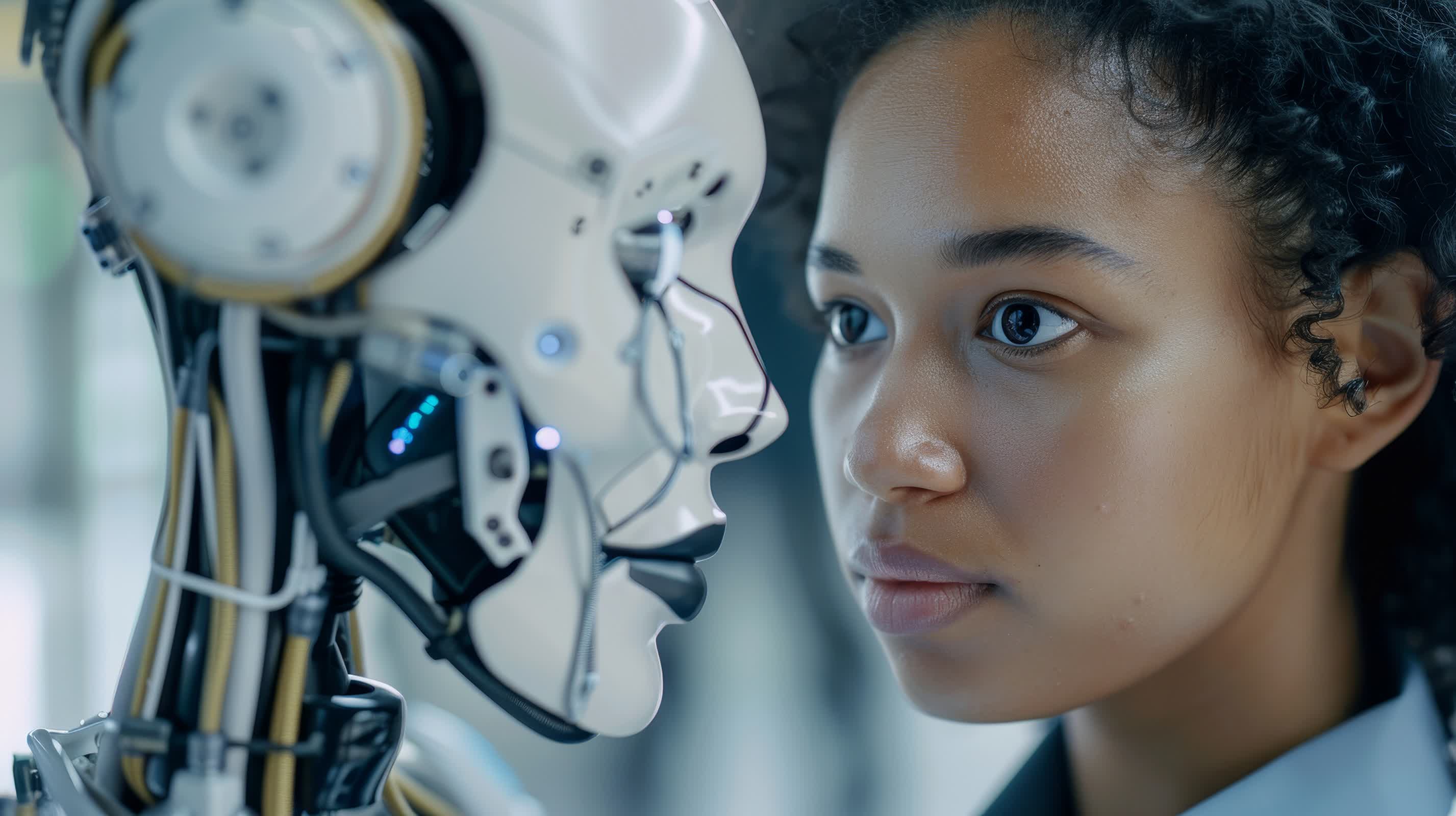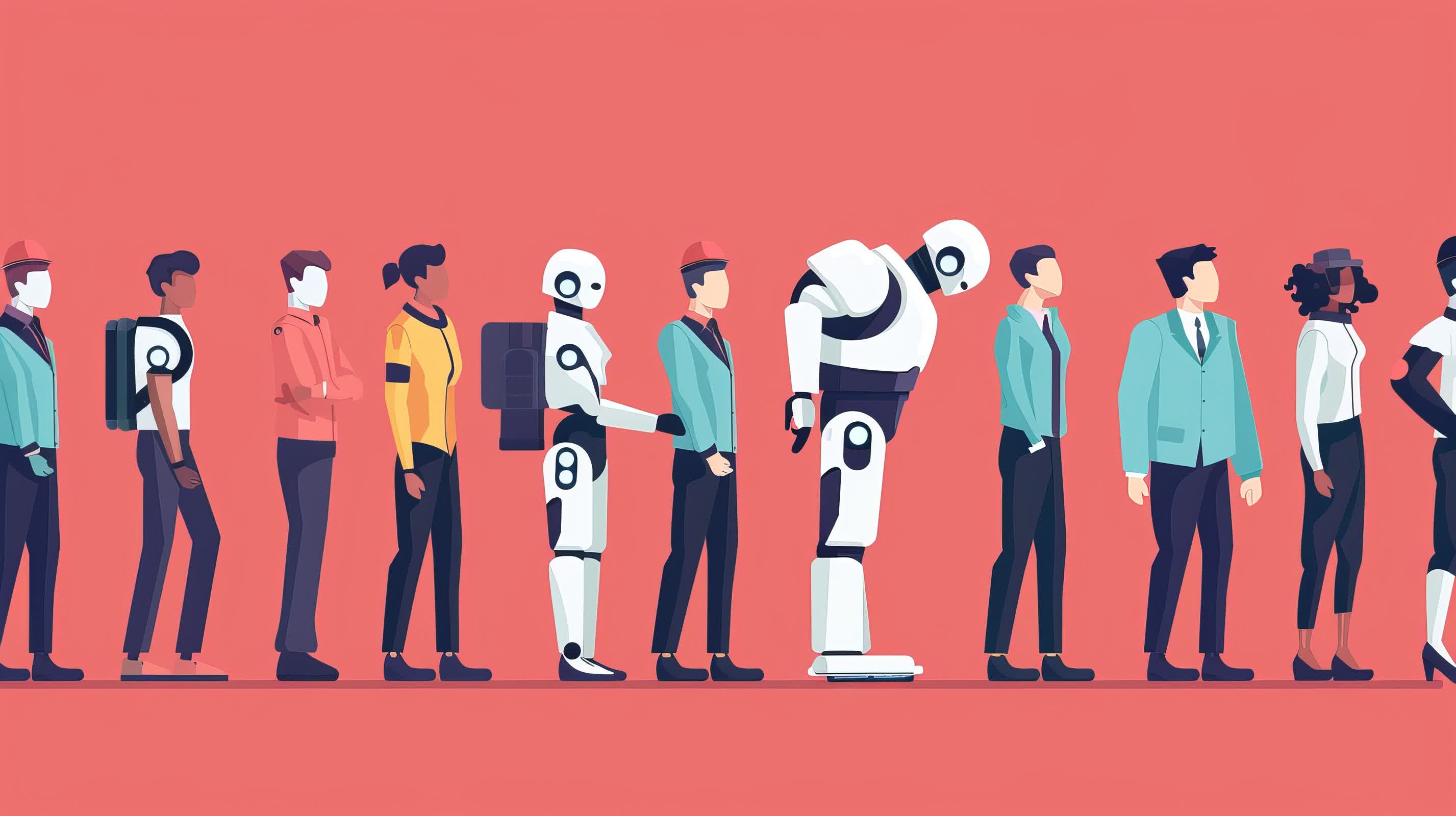In a nutshell: The rapid advance of artificial intelligence is redrawing the boundaries of white-collar employment, leaving both novice and seasoned professionals uncertain about their future in the workforce. However, experts are divided over which group faces the greatest risk.
Some within the industry, like Dario Amodei of Anthropic, argue that entry-level positions are most susceptible because their tasks are more easily automated. Amodei said that AI could "cannibalize half of all entry-level white-collar roles within five years." Rising unemployment among recent college graduates has added fuel to these concerns, though the causes remain debated.
Others see a different threat emerging for more experienced workers. Brad Lightcap, chief operating officer of OpenAI, told The New York Times that AI could challenge "a class of worker that I think is more tenured, is more oriented toward a routine in a certain way of doing things." The implications of this shift are significant: if mid- and late-career professionals are displaced, the effects could ripple through the economy and even destabilize political systems.
Data from sectors that have already embraced AI suggest that entry-level workers are feeling the brunt of the change. Payroll processor ADP reports that employment for workers with fewer than two years of tenure in computer-related fields peaked in 2023 and has since declined by about 20 to 25 percent. Customer service roles show similar patterns. Yet, according to Stanford researcher Ruyu Chen, employment for workers with greater tenure has increased in these same sectors.

Research also indicates that AI is transforming the nature of jobs, sometimes to the advantage of more experienced staff. When Italy temporarily banned ChatGPT in 2023, researchers found that while junior coders used AI to complete tasks more quickly, midlevel coders leveraged it to support their teams and manage projects in unfamiliar programming languages. "When people are really good at things, what they end up doing is helping other people as opposed to working on their own projects," said Sarah Bana, one of the study's authors. She noted that AI amplified this tendency, potentially leading companies to hire fewer junior coders but more midlevel ones.
Still, the risk to experienced workers is real. Danielle Li, an economist at MIT, explained that AI can "untether valuable skills from the humans who have traditionally possessed them. That state of the world is not good for experienced workers. You're being paid for the rarity of your skill, and what happens is that AI allows the skill to live outside of people." Li also suggested that the rise in unemployment among new graduates may reflect employers' expectations of needing fewer workers overall, not just at the entry level.
Some law firms and technology companies have already reduced their reliance on experienced professionals. Robert Plotkin, a partner at a law firm specializing in intellectual property, said his firm now uses about half as many contract lawyers as before the advent of generative AI. "I've become very efficient at using AI as a tool to help me draft applications in a way that's reduced our need for contract lawyers," Plotkin said.
Major technology firms have also made cuts that affect experienced employees. Google, Meta, and Microsoft have all conducted layoffs since 2022, with Microsoft's recent rounds including many middle managers and software developers. "Anything that is administrative, spreadsheet-related, where there's an email trail, a document-management type activity, AI should be able to perform fairly easily, freeing up time for managers to do more mentoring," said David Furlonger, a vice president at Gartner. "CEOs are implying in the data that we don't need as many of them as we did previously," he said.
The motivations behind these layoffs are multifaceted. Gil Luria, an equity analyst at D.A. Davidson, said companies are cutting costs to maintain profit margins while investing heavily in AI infrastructure. He noted that software engineers at all levels are vulnerable, particularly those with higher salaries who resist adapting to new technologies. "There are senior people who have figured out how to get leverage out of AI and senior people who are insistent that AI can't write code," Luria said.
Harper Reed, chief executive of 2389 Research, said that experienced coders with higher salaries and a reluctance to embrace AI are at risk. "How you decrease cost is not by firing the cheapest employees you have," Reed said. "You take the cheapest employee and make them worth the expensive employee." Studies suggest this is possible: recent research found that AI coding assistants increased the productivity of junior developers more than that of their experienced colleagues.
Reed explained that it may soon be financially logical for companies to hire junior employees who use AI to perform what was once mid-level work, with a handful of senior staff overseeing them and almost no middle-tier employees. That, he said, is essentially how his company is structured.
